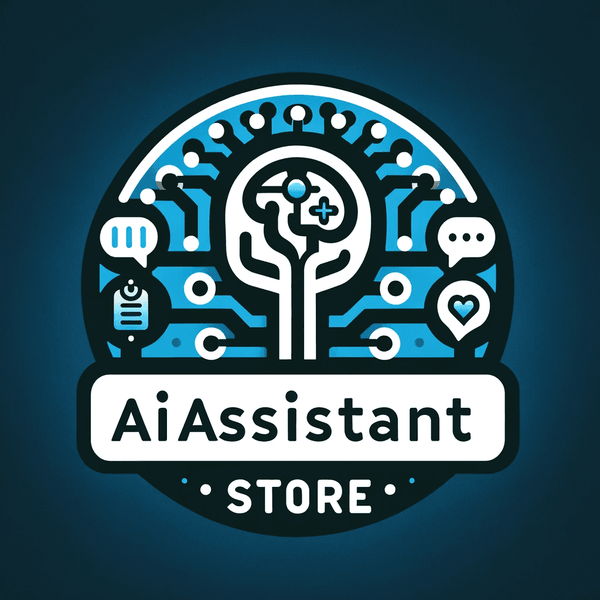🔍So...What Are AI Lab Tools?
AI lab tools are software (and sometimes hardware) systems that integrate artificial intelligence into scientific workflows. They’re designed to:
🔹 Automate data collection and analysis
🔹 Control lab instruments autonomously
🔹 Predict experimental outcomes
🔹 Optimize experiment designs using machine learning
🔹 Manage vast research datasets with minimal manual input
These tools not only save time, they reduce human error, unlock new research pathways, and significantly accelerate the innovation cycle.
Articles you may like to read after this one:
🔗 Biotech: The New Frontier for AI
Discover how AI is revolutionizing biotechnology, from drug discovery to genetic engineering, faster than ever before.
🔗 Top 10 Academic AI Tools for Education & Research
Explore the top AI tools transforming research, collaboration, and learning in academia today.
🔗 AI Tools for Literature Review – The Best Solutions for Researchers
Streamline your research process with powerful AI tools designed to help you scan, summarize, and analyze academic literature efficiently.
🎯 Why Labs Are Turning to AI Tools
Let’s face it, traditional lab work is often slow, repetitive, and prone to bias. AI changes that by offering:
🔹 Efficiency Gains: Automate repetitive tasks and reduce manual errors.
🔹 Data Mastery: Handle large datasets with real-time pattern recognition.
🔹 Smarter Experiments: Run predictive simulations before touching a pipette.
🔹 Cross-Disciplinary Insights: Discover unexpected correlations through deep learning.
🔹 Scalability: Expand research capabilities without scaling headcount.
⚔️ Best AI Lab Tools - Head-to-Head Comparison
| Tool | 🔹 Key Features | ✅ Best For | 💰 Pricing | 🔗 Source |
|---|---|---|---|---|
| BenchSci | AI-powered reagent prediction, literature mining | Biomedical & pharmaceutical research | Enterprise | 🔗 Read more |
| LabTwin | Voice-activated digital lab assistant | Real-time lab note-taking & tracking | Mid-tier | 🔗 Read more |
| LabGuru AI | Experiment automation, smart protocol suggestions | Biotech startups & academic labs | Subscription | 🔗 Read more |
| Chemputer AI | Algorithm-driven chemical synthesis | Synthetic chemistry & drug discovery | Custom | 🔗 Read more |
| Watson for Genomics | AI-driven genome interpretation & drug matching | Oncology & genomic research | Custom/Enterprise | 🔗 Read more |
🧠 Detailed Breakdown: Features & Benefits of Each Tool
1. BenchSci
🔹 Features:
-
AI scans millions of scientific papers to recommend the best reagents
-
Context-aware search engine for antibody and compound sourcing
-
Smart experiment planning tools
✅ Benefits:
-
Slashes time spent combing through literature
-
Reduces costly experimental errors
-
Used by top pharma companies for preclinical R&D
2. LabTwin
🔹 Features:
-
Voice-activated interface for hands-free data entry
-
Real-time experiment logging
-
Lab-specific vocabulary training
✅ Benefits:
-
Keeps researchers focused on experiments, not note-taking
-
Reduces transcription errors
-
Syncs with ELNs (Electronic Lab Notebooks) seamlessly
3. LabGuru AI
🔹 Features:
-
Suggests protocols based on past success rates
-
Automates experiment scheduling and task delegation
-
Integrates with IoT lab devices
✅ Benefits:
-
Boosts reproducibility and lab collaboration
-
Acts like a project manager for busy lab teams
-
Ideal for resource-constrained startups
4. Chemputer AI
🔹 Features:
-
Translates human-written synthesis into machine-readable code
-
Automates multistep chemical synthesis
-
Learns optimal reaction pathways via AI
✅ Benefits:
-
Reinvents how chemists approach synthesis
-
Reduces failed batches and material waste
-
Opens doors to reproducible on-demand drug production
5. Watson for Genomics
🔹 Features:
-
AI interprets complex genomic data in minutes
-
Matches genetic profiles to possible treatment options
-
Pulls insights from medical literature and clinical trials
✅ Benefits:
-
Speeds up cancer treatment decisions
-
Enables precision medicine at scale
-
Trusted in hospitals and research institutions worldwide
🧩 Choosing the Right AI Tool for Your Lab
Before you invest, ask yourself:
-
Is your lab data-heavy or process-heavy?
-
Do you need predictive insight or automation?
-
What integrations do you already use, LIMS, ELN, CRM?
-
Are your researchers tech-savvy or voice-first?
Also consider regulatory compliance (GxP, FDA, GDPR) and whether the tool supports versioning, audit trails, or collaboration features.

